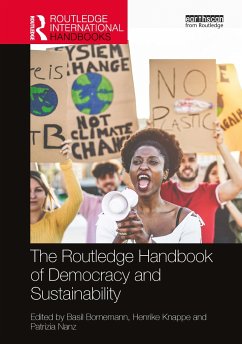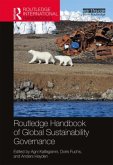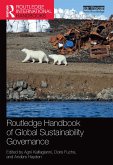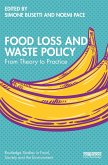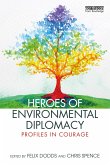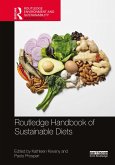This handbook provides comprehensive and critical coverage of the dynamic and complex relationship between democracy and sustainability in contemporary theory, discourse, and practice. Distinguished scholars from different disciplines, such as political science, sociology, philosophy, international relations, look at the present state of this relationship, asking how it has evolved and where it is likely to go in the future. They examine compatibilities and tensions, continuities and changes, as well as challenges and potentials across theoretical, empirical and practical contexts.
This wide-spanning collection brings together multiple established and emerging viewpoints on the debate between democracy and sustainability which have, until now, been fragmented and diffuse. It comprises diverse theoretical and methodological perspectives discussing democracy's role in, and potential for, coping with environmental issues at the local and global scales. This handbook provides a comprehensive overview of arguments, claims, questions, and insights that are put forward regarding the relationship between democracy and sustainability. In the process, it not only consolidates and condenses, but also broadens and captures the many nuances of the debate.
By showing how theoretical, empirical and practical accounts are interrelated, focusing on diverse problem areas and spheres of action, it serves as a knowledge source for professionals who seek to develop action strategies that do justice to both sustainability and democracy, as well as providing a valuable reference for academic researchers, lecturers and students.
This wide-spanning collection brings together multiple established and emerging viewpoints on the debate between democracy and sustainability which have, until now, been fragmented and diffuse. It comprises diverse theoretical and methodological perspectives discussing democracy's role in, and potential for, coping with environmental issues at the local and global scales. This handbook provides a comprehensive overview of arguments, claims, questions, and insights that are put forward regarding the relationship between democracy and sustainability. In the process, it not only consolidates and condenses, but also broadens and captures the many nuances of the debate.
By showing how theoretical, empirical and practical accounts are interrelated, focusing on diverse problem areas and spheres of action, it serves as a knowledge source for professionals who seek to develop action strategies that do justice to both sustainability and democracy, as well as providing a valuable reference for academic researchers, lecturers and students.
"Is more, less or a different democracy needed to address the challenges of climate change or biodiversity collapse? This handbook explores the relationship between democracy and sustainability and ways to reconcile them. It insists on representation and deliberation design; it explores the role of religions, multinationals, cities and science; and uncovers the implications for food systems, the right to health, nudging and collaborative consumption. The interdisciplinary line-up of theoretical and empirical experts concurring to this state-of-the-art achievement is impressive. The book's kaleidoscope of perspectives is key for anyone seeking a non-superficial understanding of these issues and non-naïve solutions to address them."
Axel Gosseries, FNRS Research Professor (Maitre de Recherches) and Extraordinary Professor, UC Louvain, Belgium
"Leading European experts and exciting emerging scholars explore the nexus of democracy and sustainability. Moving (far) beyond a stale binary in which sustainability either requires democracy or is at odds with it, this handbook delivers many insights and truly advances our understanding of theory, discourse, and practice. Among the growing list of handbooks, this one really stands out!"
John M. Meyer, Professor of Politics, California Polytechnic State University, Humboldt, USA
"This book is both timely and urgent, as it brings together important perspectives on the intrinsic relationship between democracy and sustainability - forming a prerequisite for creating a better world for all. Scholars from a range of social science disciplines provide theoretical and empirical insights on the pertinent issues for debate and action within this field of research, resulting in a comprehensive overview of great value for academics, students and practitioners."
Katarina Eckerberg, Professor in Political Science, Umeå University, Sweden
"This timely book assembles an impressive collection of thoughtful contributions that explore the relationship between democracy and sustainability. The reader is invited on a journey from the origins of the debate through theoretical reflections, considerations of structures, actors and governance to the discussion of specific issue areas, innovations and future challenges. Offering a kaleidoscope of perspectives rather than definitive answers, this volume makes a convincing case that the questions of democracy and sustainability are intertwined and urgent, emerge in manifold ways and call for reflexivity, creativity, collaboration and mutual recognition - here and now, but also beyond the space and time of traditional polities."
Peter H. Feindt, Professor of Agricultural and Food Policy, Humboldt University of Berlin, Germany
Axel Gosseries, FNRS Research Professor (Maitre de Recherches) and Extraordinary Professor, UC Louvain, Belgium
"Leading European experts and exciting emerging scholars explore the nexus of democracy and sustainability. Moving (far) beyond a stale binary in which sustainability either requires democracy or is at odds with it, this handbook delivers many insights and truly advances our understanding of theory, discourse, and practice. Among the growing list of handbooks, this one really stands out!"
John M. Meyer, Professor of Politics, California Polytechnic State University, Humboldt, USA
"This book is both timely and urgent, as it brings together important perspectives on the intrinsic relationship between democracy and sustainability - forming a prerequisite for creating a better world for all. Scholars from a range of social science disciplines provide theoretical and empirical insights on the pertinent issues for debate and action within this field of research, resulting in a comprehensive overview of great value for academics, students and practitioners."
Katarina Eckerberg, Professor in Political Science, Umeå University, Sweden
"This timely book assembles an impressive collection of thoughtful contributions that explore the relationship between democracy and sustainability. The reader is invited on a journey from the origins of the debate through theoretical reflections, considerations of structures, actors and governance to the discussion of specific issue areas, innovations and future challenges. Offering a kaleidoscope of perspectives rather than definitive answers, this volume makes a convincing case that the questions of democracy and sustainability are intertwined and urgent, emerge in manifold ways and call for reflexivity, creativity, collaboration and mutual recognition - here and now, but also beyond the space and time of traditional polities."
Peter H. Feindt, Professor of Agricultural and Food Policy, Humboldt University of Berlin, Germany

